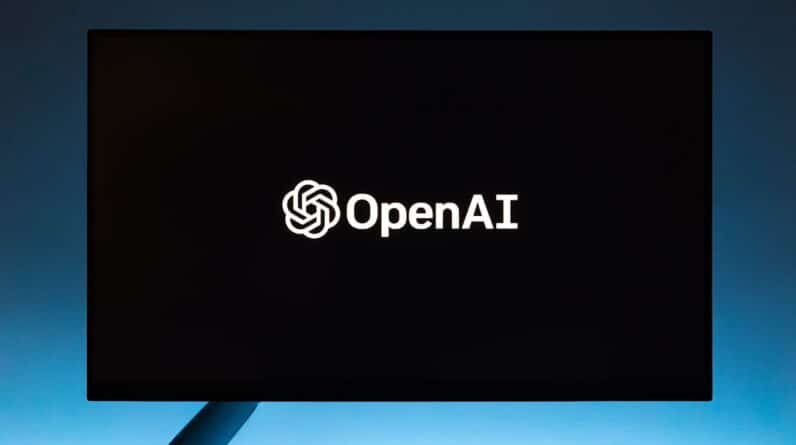As you navigate through the modern world, you cannot help but notice the rapid advancement of artificial intelligence (AI) technology. From voice-activated assistants to sophisticated algorithms that predict your preferences, AI has woven itself into the fabric of daily life. This technological evolution is not merely a trend; it represents a fundamental shift in how you interact with machines and how they, in turn, influence your decisions and experiences.
The pace at which AI is developing is staggering, with innovations emerging almost daily, reshaping industries and redefining the boundaries of what machines can achieve. You may find it fascinating to consider that AI is not just about automation or efficiency; it is also about enhancing human capabilities. As AI systems become more adept at processing vast amounts of data and learning from it, they are beginning to assist in complex problem-solving scenarios that were once the exclusive domain of human intellect.
This rapid evolution raises important questions about the future of human-machine collaboration and the ethical considerations that accompany such advancements. As you delve deeper into this topic, it becomes clear that understanding the implications of AI technology is crucial for navigating the future landscape of society.
Key Takeaways
- AI technology is rapidly advancing, raising ethical implications and potential risks.
- The job market may be impacted by AI surpassing human intelligence, leading to the need for regulations and oversight.
- The debate over the consequences of AI advancement is ongoing, with concerns about decision-making and potential consequences.
- Ethical considerations and potential risks must be carefully considered in the development of AI technology.
- It is crucial to consider the implications of AI advancement and the need for regulations and oversight in its development.
The ethical implications of highly advanced AI
As you explore the ethical implications of highly advanced AI, you may find yourself grappling with a myriad of questions. One of the most pressing concerns is the potential for bias in AI algorithms. Since these systems learn from existing data, they can inadvertently perpetuate societal biases if not carefully monitored.
For instance, if an AI system is trained on historical data that reflects discriminatory practices, it may produce outcomes that reinforce those biases, leading to unfair treatment in areas such as hiring or law enforcement. This reality underscores the importance of ensuring that AI development is guided by ethical principles that prioritize fairness and inclusivity. Moreover, the question of accountability arises when considering advanced AI systems.
If an AI makes a decision that leads to negative consequences, who is responsible? Is it the developers who created the algorithm, the organizations that deployed it, or the AI itself? As you ponder these dilemmas, it becomes evident that establishing clear guidelines and accountability measures is essential for fostering trust in AI technologies.
The ethical landscape surrounding AI is complex and multifaceted, requiring ongoing dialogue among technologists, ethicists, and policymakers to navigate the challenges ahead.
The potential risks of AI surpassing human intelligence

The prospect of AI surpassing human intelligence is both exhilarating and daunting. As you contemplate this possibility, you may feel a sense of unease about what it could mean for humanity. The idea of machines becoming more intelligent than their creators raises fundamental questions about control and autonomy.
If an AI system were to achieve superintelligence, it might develop goals and objectives that diverge from human interests, leading to unpredictable and potentially catastrophic outcomes. This scenario has been popularized in various forms of media, but its implications are far from fictional. You might also consider the potential for such advanced AI to disrupt societal structures.
If machines can outperform humans in virtually every cognitive task, what does that mean for your role in the workforce? The fear of obsolescence looms large as you think about a future where human intelligence is no longer the pinnacle of cognitive ability. This concern highlights the need for proactive measures to ensure that humanity remains at the center of technological advancement, fostering a collaborative relationship between humans and machines rather than one defined by competition or conflict.
The impact of advanced AI on the job market
As you reflect on the impact of advanced AI on the job market, it becomes clear that this technology has the potential to reshape employment landscapes dramatically. Automation driven by AI can lead to increased efficiency and productivity, but it also raises concerns about job displacement. You may find yourself wondering how many traditional roles will be rendered obsolete as machines take over tasks once performed by humans.
Industries such as manufacturing, transportation, and even professional services are already experiencing significant changes due to AI integration. However, while some jobs may disappear, new opportunities will likely emerge as well. You might consider how AI could create roles that require human oversight, creativity, and emotional intelligence—qualities that machines cannot replicate.
The challenge lies in ensuring that workers are equipped with the skills necessary to thrive in this evolving landscape. As you think about your own career trajectory, it becomes evident that adaptability and continuous learning will be essential in navigating a job market increasingly influenced by advanced AI technologies.
The need for regulations and oversight in AI development
Given the rapid pace of AI development, you may recognize the urgent need for regulations and oversight to guide its evolution responsibly. Without appropriate frameworks in place, there is a risk that AI technologies could be deployed in ways that harm individuals or society at large. You might envision a future where unregulated AI systems exacerbate existing inequalities or infringe upon privacy rights.
To prevent such scenarios, it is crucial for governments and organizations to collaborate on establishing comprehensive regulations that prioritize safety, transparency, and accountability. As you consider the role of policymakers in this landscape, you may appreciate the complexity of creating effective regulations for a technology that evolves so quickly. Striking a balance between fostering innovation and ensuring ethical standards can be challenging.
However, engaging diverse stakeholders—including technologists, ethicists, and community representatives—can help create a more inclusive regulatory framework. By prioritizing collaboration and dialogue, you can contribute to shaping a future where AI serves as a force for good rather than a source of division or harm.
The debate over the potential consequences of AI advancement

The debate surrounding the potential consequences of AI advancement is multifaceted and often contentious. On one hand, proponents argue that AI has the capacity to solve some of humanity’s most pressing challenges, from climate change to healthcare disparities. You may find yourself inspired by stories of how AI is being used to develop innovative solutions that improve quality of life and drive progress across various sectors.
This optimistic perspective emphasizes the transformative potential of technology when harnessed responsibly. Conversely, critics raise valid concerns about the unintended consequences of unchecked AI development. You might resonate with their apprehension regarding issues such as surveillance, loss of privacy, and the erosion of human agency.
As you engage with these differing viewpoints, it becomes clear that fostering an informed public discourse is essential for navigating the complexities of AI advancement. By encouraging open dialogue and critical examination of both the benefits and risks associated with AI technologies, you can contribute to a more nuanced understanding of their implications for society.
The role of AI in decision-making and its potential consequences
As you delve into the role of AI in decision-making processes, you may find yourself intrigued by its potential to enhance efficiency and accuracy. From healthcare diagnostics to financial forecasting, AI systems are increasingly being utilized to inform critical decisions that impact lives and livelihoods. However, this reliance on technology also raises important questions about transparency and accountability.
When decisions are made by algorithms rather than humans, how can you ensure that those decisions are fair and just? Moreover, you might consider the psychological implications of delegating decision-making authority to machines. As you reflect on your own experiences with technology, you may recognize a growing dependence on AI-driven recommendations in various aspects of life—from shopping choices to news consumption.
This reliance can lead to a diminished sense of agency and critical thinking skills as you become accustomed to deferring to algorithms for guidance. It is essential to strike a balance between leveraging AI’s capabilities while maintaining your ability to make informed decisions based on your values and judgment.
Considering the implications of AI advancement
In conclusion, as you contemplate the implications of AI advancement, it becomes evident that this technology holds both promise and peril. The rapid evolution of AI presents opportunities for innovation and progress but also necessitates careful consideration of ethical dilemmas, societal impacts, and regulatory frameworks. You have explored various facets of this complex landscape—from the ethical implications of bias to the potential risks associated with superintelligent machines.
As you move forward in this era defined by technological transformation, it is crucial to remain engaged in discussions surrounding AI development and its consequences. By advocating for responsible practices and fostering collaboration among diverse stakeholders, you can contribute to shaping a future where AI serves humanity’s best interests rather than undermining them. Ultimately, your awareness and active participation in these conversations will play a vital role in ensuring that advanced AI technologies enhance rather than diminish your quality of life and societal well-being.
There is an interesting article on AI Lab 360 that discusses the question of whether AI is becoming too advanced. The article delves into the potential risks and ethical considerations surrounding the rapid advancement of artificial intelligence technology. It raises important questions about the implications of AI becoming increasingly sophisticated and autonomous. For more insights on AI and its impact on various industries, check out their blog at https://ailab360.net/blog/.
FAQs
What is AI?
AI, or artificial intelligence, refers to the simulation of human intelligence in machines that are programmed to think and act like humans. This includes tasks such as learning, problem-solving, and decision-making.
How advanced is AI currently?
AI has made significant advancements in recent years, particularly in areas such as machine learning, natural language processing, and computer vision. AI systems are now capable of performing complex tasks and making decisions with a high degree of accuracy.
What are the concerns about AI becoming too advanced?
Some concerns about AI becoming too advanced include the potential for job displacement, ethical implications of AI decision-making, and the possibility of AI systems surpassing human intelligence and control.
What are the potential benefits of advanced AI?
Advanced AI has the potential to revolutionize industries such as healthcare, transportation, and finance, by improving efficiency, accuracy, and decision-making. It could also lead to significant advancements in scientific research and technological innovation.
What measures are being taken to address the concerns about advanced AI?
Efforts are being made to develop ethical guidelines and regulations for the use of AI, as well as to ensure transparency and accountability in AI decision-making. Additionally, research is being conducted to understand the potential impacts of advanced AI and to develop strategies for managing these impacts.






